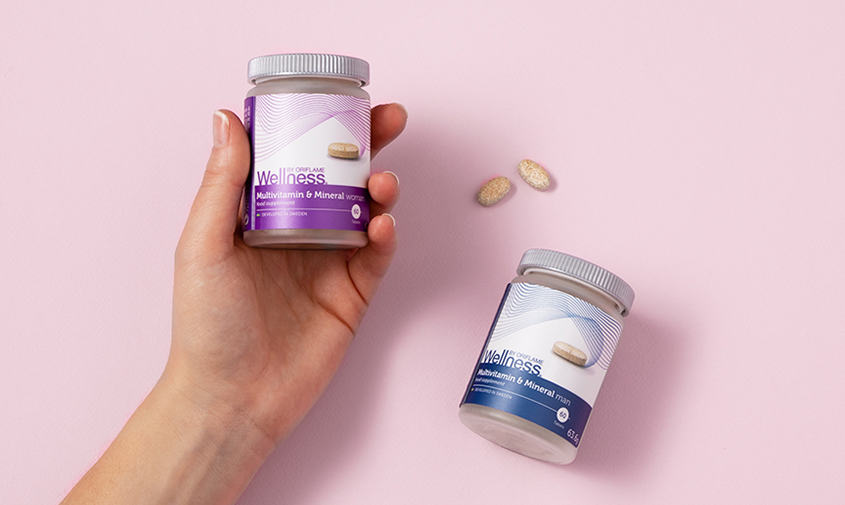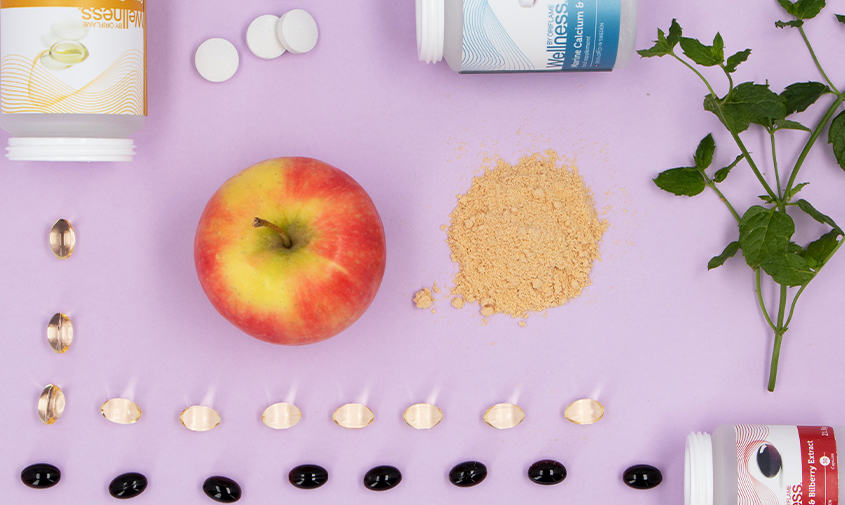
1. Ok, first thing’s first: What is a multivitamin?
Ever heard the term “a multivitamin a day keeps the doctor away”? Well, it’s true… sort of. Some of the essential micronutrients the body needs to function at its very best are not, in fact, produced by the body. Enter multivitamins. A multivitamin is a blend of essential vitamins and minerals, most commonly in the form of a handy tablet or capsule, that is specifically developed to bridge the gap caused by any micronutrient shortfalls in your diet (from say, a weekend spent gorging on pizza and chips, with nary a green veggie in sight). It is essential micronutrients like these that contribute to your radiant complexion, boosted immunity when others around you are sneezing and coughing up a storm on the bus, and muscle repair after a tough workout (just to name a few).
2. I already exercise and eat healthy. Do I still need a multivitamin?
Perhaps you’re one of those mythical individuals that wakes up early after a solid eight hours of restfully undisturbed sleep, squeezes in half an hour of yoga, and has time over to prepare a nourishing breakfast filled with healthy protein, complex carbs, good fats, and leafy green and orange fruits and vegetables (if so, we commend you – but also, what’s your secret?). And of course, when it comes to getting our recommended daily dose of essential nutrients, multivitamins are certainly not intended to replace a good old balanced and varied diet. But as much as we’d like our diets to always match the many colours of the rainbow, anyone who’s experienced a particularly stressful week can attest to the fact that our nutritional needs are among the first things to be overlooked (along with sleep and exercise) in the wake of a busy schedule. While multivitamins won’t make up for a lifetime of poor diet choices, it’s nice to know that they can provide you with a nutritional safety net of sorts if you’re feeling extra stressed, haven’t had time to exercise, or have been neglecting your healthy diet in favour of processed foods (which are often vitamin and mineral deficient).

3. Can you eat too many multivitamins?
When it comes to vitamins, it is certainly possible to take too many, especially fat-soluble vitamins like Vitamin A, D, E, and K. But if we’re talking multivitamins, which have been specifically (and very precisely) formulated to contain the recommended amounts of vitamins and minerals to support your nutritional needs, then you don’t have to worry about going overboard – unless of course, you’re taking more than the recommended daily dosage. In the case of our Wellness by Oriflame Multivitamin and Mineral Man/Woman, you only need to take one tablet a day and that’s that. But as always, if you’re unsure, it’s best to consult with a doctor to learn more about your body’s unique nutritional needs.
4. What’s in a multivitamin?
There is, of course, no cut and dry recipe for every single multivitamin out there, so the best way to answer that is: it depends. Many multivitamins are specifically designed to support the unique nutritional needs of different groups, such as men, women, pregnant women, children, or senior individuals – for example, our Wellness by Oriflame Multivitamin and Mineral Man/Woman provides 22 of the essential vitamins and minerals required by men and women (where women might require more iron and calcium, while men need more magnesium, chromium, selenium, zinc, and Vitamin A), and includes vitamins: A, D, E, C, B1, B2, B3, B5, B6, B7, B12, and folic acid, as well as minerals: iron, zinc, copper, manganese, selenium, iodine, chromium, molybdenum.
When taken in combination with a balanced diet, these essential vitamins and minerals can help support your immunity, energy levels, metabolism, and overall sense of wellbeing – namaste!
So, while a multivitamin a day may not be the only thing required to keep the doctor away, it certainly is an ideal complement to a healthy lifestyle and a balanced and varied diet!



